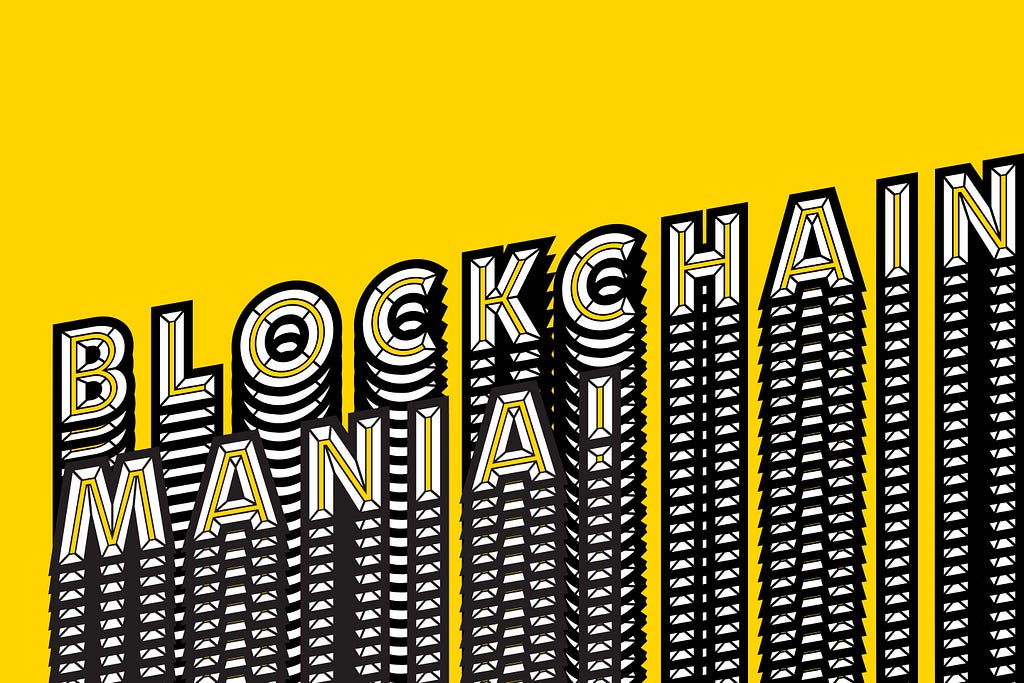Latest news about Bitcoin and all cryptocurrencies. Your daily crypto news habit.
 (Image credits: Fortune)Why is it so hard to find a good definition? Let’s start with the ABC.
(Image credits: Fortune)Why is it so hard to find a good definition? Let’s start with the ABC.
Blockchain is now ubiquitous. We all talk about it. We all read about it. Blockchain for this. Blockchain for that. But oftentimes we don’t fully understand it. And indeed, finding simple and easy definitions is hard.
After all, understanding what blockchain is and how it works, as well as identifying myths about its potential and possible applications are the first steps to better understanding the future of technology.
Here’s a collection of a few definitions of blockchain — beyond Bitcoin and cryptocurrencies — I find really useful and easy to understand.
In a 2017 Harvard Business Review article, Marco Iansiti and Karim R. Lakhani define blockchain as “the technology at the heart of bitcoin and other virtual currencies,” and “an open, distributed ledger that can record transactions between two parties efficiently and in a verifiable and permanent way.”
They add: “With blockchain, we can imagine a world in which contracts are embedded in digital code and stored in transparent, shared databases, where they are protected from deletion, tampering, and revision. In this world every agreement, every process, every task, and every payment would have a digital record and signature that could be identified, validated, stored, and shared. Intermediaries like lawyers, brokers, and bankers might no longer be necessary. Individuals, organizations, machines, and algorithms would freely transact and interact with one another with little friction. This is the immense potential of blockchain.”
In a video published by the Centre for International Governance Innovation (CIGI), blockchain is defined as “shorthand for a whole suite of distributed ledger technologies that can be programmed to record and track anything of value from financial transactions to medical records or even land titles.”
The video continues by explaining that “blockchain stores information in batches called blocks that are linked together in a chronological fashion to form a continuous line, metaphorically a chain of blocks. If you make a change to the information recorded in a particular block, you don’t rewrite it. Instead the change is stored in a new block showing that X changed to Y at a particular date and time.”
This feature of blockchain, coupled with its decentralized, distributed nature and cryptographic elements, reduce the risk of data tampering and thus create trust in the data.
And here’s Mark Sandusky, video and animation lead at ConsenSys, explaining blockchain in a very short video.
“Blockchain is basically a way for a network of people to collectively maintain a database of truth that no one person or entity owns,” Mark explains.
A few months ago, at an panel discussion on “Blockchain for Government and Diplomacy,” somebody asked Tori Adams, VP of Consensys Civic (US Government Practice), how to define blockchain to somebody who woke up from a coma after 20 years.
Her answer was quite eye-opening:
Don’t worry about it.
“I think about that a lot, cause I try to explain it to my dad,” Tori said, explaining how she has two ways to look at this. “One is to say to people ‘don’t worry about it’. Do you know how your phone works? I haven’t the faintest idea how my phone works. What we’re talking about — not how the phone works — but about how TCP/IP, how the Internet works. We don’t need to know how it works to know that it works. So, on one hand, don’t worry about it and look at the apps that are built on it and the services it offers. You don’t need to understand how the Internet works to be able to book a flight online. You just need to know that it works.”
Tori, however, goes a bit more into the definition of blockchain, calling it “ a truth preserving machine.” She explains: “If something is true in one point, it is going to be true in another point. And if you don’t trust people, that truth preserving activity is really important thing to do. Conceptually, it is really what it does: it allows you to share information that you’re worried about between people you don’t trust. That’s a pretty good thing!”
What is blockchain? was originally published in Hacker Noon on Medium, where people are continuing the conversation by highlighting and responding to this story.
Disclaimer
The views and opinions expressed in this article are solely those of the authors and do not reflect the views of Bitcoin Insider. Every investment and trading move involves risk - this is especially true for cryptocurrencies given their volatility. We strongly advise our readers to conduct their own research when making a decision.
